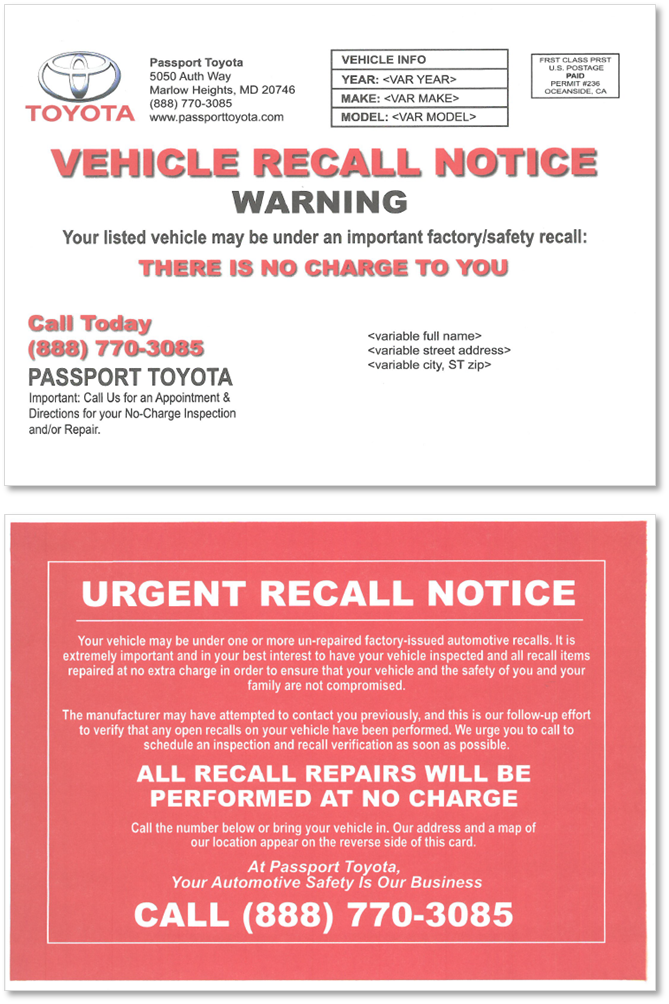A recall notice for your car or truck signals a serious safety defect that you should try to get fixed quickly. According to an FTC lawsuit, a group of auto dealerships counted on people doing just that when they sent fake mailers marked “URGENT RECALL NOTICE” to more than 21,000 vehicle owners, most of whom did not have recalls.
In the words of one defendant, the mailers were designed to “drive some traffic” to the dealerships’ service departments. According to the FTC, many people who got the notices called the dealerships t o find out their vehicle’s actual recall status. Many who called were told they had to bring their vehicles to the service departments to learn their vehicle’s status and, the FTC said, a lot of them did.
o find out their vehicle’s actual recall status. Many who called were told they had to bring their vehicles to the service departments to learn their vehicle’s status and, the FTC said, a lot of them did.
The dealerships operate in Virginia and Maryland as Passport Toyota, Passport Nissan of Alexandria, and Passport Nissan of Marlow Heights. A settlement with the FTC prohibits the dealerships, a California marketing company operating as Overflowworks.com, and the companies’ principals from making any future misrepresentations about any vehicle’s recall status or other facts about its safety.
Here are steps to take if you receive a vehicle recall notice:
- If your vehicle has a recall, get it fixed. Call your local dealer to schedule a free repair.
- To check if your vehicle has a current safety recall, visit the National Highway Traffic Safety Administration (NHTSA) website, NHTSA.gov/Recalls, and enter your vehicle identification number (VIN).
- If you have questions about the recall, call the vehicle manufacturer at its toll-free number.
- Sign up at NHTSA.gov/Alerts to be notified by email if your vehicle is affected by a future recall.
If you think you got a fake recall notice, report it to the FTC. Let NHTSA know, too, by reporting it at NHTSA.gov or 1-888-327-4236.
To learn more, visit NHTSA’s website, safercar.gov, and check out our article on auto repairs.

In reply to So they were caught and were by dp
In reply to That is sad. They are praying by akpetony
In reply to I thought something in this by Michael b
For information about recalls, please visit the National Highway Traffic Safety Administration (NHTSA) website,www.NHTSA.gov/Recalls.